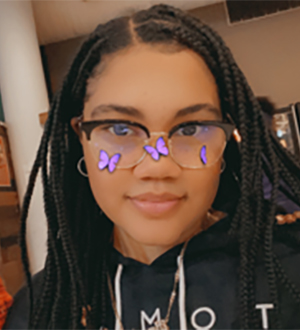Weekly Responses
Post your weekly responses here.
Topic: Sumer
Due: Sun Sep 15
Prompt: What do this week’s readings from Gilgamesh tell us about Sumer?
The documents for this week are:
For your online response this week, write a post that includes the following:
- What passage or detail in particular jumped out at you as you read through this week’s primary source readings?
- What do you think the author was trying to communicate?
- What would you like to find out more about?
Responses for Week 3
Tablet 2
 Albert Romero
442
Albert Romero
442
2024-09-26 12:16:30
- What passage or detail in particular jumped out at you as you read through this week’s primary source readings?
The passage that stook out to me in particular was how evil Gilgamesh was that he would make men fight and rival the champion. And on wedding days he would sleep with the bride. And i love how Enkidu even though being a senseless man who has no experience in human morality nor has dived into the morality of a civilized man. Stood up for the first time to defend his values. Even though its questionable how one was able to create a wholeheartedly value in the first place being raised and born in the wild.
- What do you think the author was trying to communicate?
I think the author was trying to communicate that Gilgamesh all he really needed was someone to respect and value. Human values play an crucial part to one's life. Value is what some people give their lives for. Is what people fight for, and we live our lives based on how we value things and people. Its what determines how we treat others. And now that Gilgamesh fought Enkidu and respected him highly, he no longer sought his maddening pleasure and decided to give life value one more time. Deciding to become friends with Enkiddu and deciding to go and fight Humbaba
- What would you like to find out more about?
I would love to learn more on why Enkiddu was crying. His transformation to a civilized man is almost so instant. Its hard to say that values and morality comes from society, but rather we are born with a conscious of a morality written in our hearts. One so strong and evident Enkiddu is willing to fight for and make things right.
Week 3
 Zuleyaime LaGuerre
382
Zuleyaime LaGuerre
382
2024-09-17 15:33:27
1.What passage or detail in particular jumped out at you as you read through this week’s primary source readings?
The quote that stood out most to me was
“'Why do you desire to do this thing?
... anything ... do you want so much?
Let me ......... , a feat that never was done in the land.'”
2.What do you think the author was trying to communicate?
I believe the author was using Enkidu as a grounding force for Gilgamesh as a way to help Gilgamesh reflect on his actions as well as his purpose of the quest.
3.What would you like to find out more about?
I would like if there is more to the reason for Gilgamesh going on the quest because while he does state why he does it; to protect the cedar, I am curious if there is more to his reason that he is not telling. Before he was described as a tyrant who seeks the thrill of battle.
Traditions
 Diomedes Sena
376
Diomedes Sena
376
2024-09-15 23:49:02
The part of the reading that jumped out to me this week was from Tablet 2. Shamhat introduces Enkidu to the Sumerian ways of life. She takes him to the temple and explains thst men are labourers and so, as a man, he will have a place there. She also tells him that bread is “essential to life” and ale is the “lot of the land”. Finally, she tells him that “It is the lot of the people to contract a marriage.”
From these details I believe that the author was not just introducing Enkidu to Sumer but was introducing us to it as well. By explaining the tradiotions and beliefs of the sumerians, the author gives us a better background to the story. This is essential as it helps us understand how the charcaters think and as it better explains their actions.
One thing I would like to know more about is how will Enkidu react to the other traditions of Sumer? We saw how the food made him happy and the tradions of the bride, made him angry. However, are there other things that he doesnt agree with? Are there things he supports?? How well will he acclimate?
Response for Week 3
 Shafwan Ibn Majid
374
Shafwan Ibn Majid
374
2024-09-15 23:36:43
What passage or detail in particular jumped out at you as you read through this week’s primary source readings?
A passage or detail, in particular, jumped out at me as I was reading through this week’s primary source readings when Gilgamesh and Enkidu were fighting. One of the reasons why this detail in particular jumped out at me is because everyone in Gilgamesh’s village knows Gilgamesh is king or God and challenging his authority is a huge mistake. My question is how Enkidu has the guts to challenge Gilgamesh’s authority.
What do you think the author was trying to communicate?
I think the author was trying to communicate that if Gilgamesh wants something or does something he just does it without thinking about the consequences of his actions.
What would you like to find out more about?
I would like to find out more about more about Gilgamesh's actions as king.
Week 3 Response. Tablet 2
 Collin Underhill
373
Collin Underhill
373
2024-09-15 23:35:25
The part in Tablet 2 that stood out to me was when Enkidu blocks Gilgamesh's path and "the land of Uruk was standing [around him.]" and how they "like a babe-in-arms were [kissing his feet.]" It's interesting how supportive of Gilgamesh they were since he ruled like a tyrant and would sleep with every mans' new wife before they could. It is also interesting that Enkidu describes Gilgamesh word for word how he was described in Tablet 1. I am unsure what the author is trying to communicate to use by telling us that the townspeople were supportive of Gilgamesh. Maybe they feared Enkidu more than they did Gilgamesh. I would like to learn more about what was going on in Uruk before and after Gilgamesh and Enkidu met.
Week 3: Sumer
 Johana Funes
366
Johana Funes
366
2024-09-15 22:25:56
- What passage or detail in particular jumped out at you as you read through this week’s primary source readings?
One of the passages that stood out to me is the following from Tablet 5. The Combat with Humbaba
“Before Enlil the foremost hears what we do,
and the [Great] gods take against us in anger,
Enlil in Nippur, Shamash in [Larsa]...,
establish forever [a fame] that endures,
how Gilgamesh [slew ferocious] Humbaba!”
- What do you think the author was trying to communicate?
Throughout Tablet 2 and 5, the author often brings up how the people of Uruk believed in internal life being, not immortal, but set in stone something that would last for centuries to come. The author is trying to communicate how power or greatness, comes not necessarily from unearthly powers, but from the actions tied to the name from which you are remembered (can’t specifically remember, but there was a specific passage that directly emphasized this). The passage also mentions the people (more specifically Enkidu in this case) fear defying the gods yet Enkidu and Gilgamesh have come thus far and think they are righteous and capable of escaping the gods if they act quickly enough. Not only will they have deceived the gods, but Enkidu was trying to convince Gilgamesh to finish the deed and kill Humbaba, protector of the Forest of Cedar, as Gilgamesh would be basically making a mark in history where he would then find eternal fame.
- What would you like to find out more about?
I would like to dig more into where their fear of the gods comes from, and what is their purpose or motive for their beliefs as a whole.
Week #3 Response
 Amanda Isaac
364
Amanda Isaac
364
2024-09-15 22:02:50
What stood out to me in this weeks reading was the fact that Enkidu was the one persistant for Gilgamesh to kill Humbaba, instead of gilgamesh just naturally wanting to do it himself, the one that chose to seek Humbaba out. This stood out to me because Knowing that Humbaba represents nature in a way being the guardian of that forest, and Enkidu, being created amongst the wild(And those two thing are typically intertwined with each other) I thought that there would have been a deeper hesitation of sympathy from Enkidu, especially due to his resistance in the beginning of this journey.
I think that the author is trying to communicated that even though Gilgamesh is slowly learning from Enkidu and becoming a better ruler because of him, Enkidu is learning from Gilgamesh as well, as he goes deeper into his would and a part of Gilgamesh's Civilization. I belive that this is not a jouney that Enkidu would have embarked on if he had not met Gilgamesh just as i belive that Gilgamesh would not have hesitated killing Humbaba before he met Enkidu
One thing that i would like to know more about is the intentions of the gods on Gilgameshes journey and their intentions. Knowing that the killing of Humbaba displeases them and holds no good potential outcome, they chose to aid Gilgamesh and Enkidu in killing Humbaba.
Tablets 2 and 5
 Siwani Gurung
359
Siwani Gurung
359
2024-09-15 21:40:04
- What passage or detail in particular jumped out at you as you read through this week’s primary source readings?
A specific line that jumped out to me was when the author described Shahmat as taking Enkidu 'by the hand... like a God'. The idea of women as significant to the future interlinks with this notion as she guides him to the shepherds' camp, where he would be nourished to fulfil his destiny with Gilgamesh. Moreover, the simile that compares Shahmat to a God highlights how much these civilizations truly relied on their Gods. Although not trusting their deities, they relied on their good favors in order to live a successful life.
- What do you think the author was trying to communicate?
I think the author communicates through these tablets the importance of conquest to civilization and empire. The author uses the battle against Humbaba, the forest guardian, to bond these two from such different upbringings in a sort of brotherhood. Gilgamesh, although far more experience in battle than Enkidu, hesitates and only performs the execution with Enkidu's encouragement, perhaps implying a shift in the power dynamic toward Enkidu.
- What would you like to find out more about?
I would like to find more about the consequences of defeating Humbaba, and the reasons for Gilgamesh's hesitations, as it seems to have dire consequences.
Response for week 3
 Amanda Guzman
350
Amanda Guzman
350
2024-09-15 17:28:16
1.What passage or detail in particular jumped out at you as you read through this week’s primary source readings?
The detail that jumped out to me the most in this week's reading is that in tablet 2 Enkidu was strongly against fighting Humbaba and seemed scared to take on the quest of fighting him and because of this Gilgamesh questions why Enkidu is acting like a weakling. Then by tablet 5 Enkidu seems hesitant to deliver the final blow to Humbaba as he is beginning for mercy and Enkidu is urging Gilgamesh to finish Humbaba, this switch in opinions towards the matter stuck out to me a lot because it makes me question what was going through Enkidu’s mind from before the fight leading to him not wanting to have mercy for Humbaba.
2.What do you think the author was trying to communicate?
I think the author was trying to communicate the sort of hold that Enkidu has on Gilgamesh that he is able to slightly convince Gilgamesh to do things such as finishing off Humbaba it seems as if Gilgamesh considers Enkidu as an equal and does listen to his opinions in some cases.
3.What would you like to find out more about?
I would like to find out more about the curse that Humbaba has placed on the heroes , since Humbaba has stated that they will not grow old. I would like to know if he meant that in a literal sense or meaning that they will die and if that is the case how does Humbaba know that, is he really capable of putting a curse on them or does he have some sort of foresight?
Response for week 3
 Thierno Bah
346
Thierno Bah
346
2024-09-15 16:37:02
- One detail that struck me most was the physical confrontation between Enkidu and Gilgamesh at the wedding house was a powerful detail. It is not simply a struggle of two, yet it is an affray of degree professionals that helps engender their mutual affection and up to this point Enkidu serves as a developmental figure for Gilgamesh. This advance introduced pave the way for their relationship, which is one of the essences of the narrative.
- I believe the author was trying to communicate the idea that civilization is developmental and depends on mankind’s bonds and interaction and, furthermore, human beings are defined by the ability to change and grow throughout Enkidu’s development in tablet 2. Furthermore, he attempted to state this central concept that due to the emergence of the bond between Enkidu and Gilgamesh they embarked on their quest and were able to be moral and emotional crutch for one another.
- I would like to know more about the impact Enkidu exerted on Gilgamesh during their journey and the reason Shamash came to help Gilgamesh during the combat with Humbaba.
Tablet 5
 Zacharie Boutoille
345
Zacharie Boutoille
345
2024-09-15 15:42:54
The passage that stands out to me is the divine intervention of Shamash in the battle against Humbaba. Shamash sends powerful winds to immobilize the monster, ensuring that Gilgamesh and Enkidu can defeat him. This moment of divine intervention is peculiar to me. One, because it implies that Gilgamesh, despite his strength and heroism, cannot complete his quest alone. He requires the direct help of a god to overcome the monstrous Humbaba. Two, I found it interesting that the Gods would assist in the seeming desecration of a cedar grove considered sacred. Three, the seemingly unstoppable Gilgamesh not only needs assistance but then later hesitates after the battle. It also portrays Gilgamesh as someone chosen by the gods, a messiah or “chosen one”.
I think the author is trying to communicate that Gilgamesh is not just an ordinary king or warrior but is divinely favored and perhaps destined for larger purposes. The intervention of Shamash reinforces the idea that Gilgamesh’s journey is sanctioned by the gods and that his actions carry divine significance. It also suggests that the gods are deeply invested in human affairs, and Gilgamesh, as a ruler, holds a special place in the cosmic order.
I would like to learn more about the intent of the gods. They have very roundabout and confusing ways to intervene in mortal affairs. I’m curious if Gilgamesh continues to grow more and more into a leader as he continues his adventures.
Week 3 Response- Gilgamesh Tablet 2 & 5
 Emily M Ulloa
344
Emily M Ulloa
344
2024-09-15 14:41:43
- What passage or detail in particular jumped out at you as you read through this week’s primary source readings?
Tablet 2: In this passage what particularly stood out to me was when the mother of Gilgamesh blesses their friendship and takes Enkidu as a son. "the mother of Gilgamesh [opened her mouth to speak,] saying to [her son] Wild-Cow Ninsun [opened her mouth to speak,][saying to Gilgamesh:] ‘My son, in his gate …… , bitterly you ....,‘You hold ……… in his gate ….‘Bitterly he …… ,Enkidu possesses no [kith or kin.] Shaggy hair hanging loose …. he was born in the wild and [has] no [brother.]’Standing there, Enkidu heard [what she said,] and thinking it over, he sat [down weeping.] His eyes brimmed with [tears,] his arms fell limp, [his] strength [ebbed away.
Tablet 5: In this passage what particularly stood out to me was when Enkidu was enforcing Gilgamesh to kill Humbaba because Enkidu selfishly wanted to rule the mountain of Humbaba. ""You understand the rules of my forest, the rules..., further, you are aware of all the things so ordered (by Enlil)." I should have carried you up, and killed you at the very entrance to the branches of my forest. I should have fed your flesh to the screeching vulture, the eagle, and the vulture. So now, Enkidu, clemency is up to you. Speak to Gilgamesh to spare my life!"
Enkidu addressed Gilgamesh, saying: My friend, Humbaba, Guardian of the Cedar Forest grind up, kill, pulverize(?), and destroy him!
- What do you think the author was trying to communicate?
Tablet 2: In this passage the author was trying to communicate civilization and nature when Enkidu traveled his way to Uruk and learned how to eat, wear clothes and even drink. It also communicates the begining of a rocky friendship start where two people (Enkidu and Gilgamesh) have a similar formal rival to fight together instead of against each other. In the beginning of the passage, as Enkidu showed some type of Jealousy and terror over Gilgamesh you can see that they start to become a team.
Tablet 5: In this passage the author was trying to communicate morality and meaning due to the actions both Enkidu and Gilgamesh made through fear which lead to bad consequences. This made Gilgamesh realize that in order to make a name for yourself you have to make risks. Two people experiencing same emotions can make them come together and build a friendship even though it did not start off with the right intentions. With ending with the right intentions, they were able to achieve their goal and continue together.
- What would you like to find out more about?
I would like to find more about how the friendship Enkidu and Gilgamesh continues and grows since its freshly developed. I also would like to know why is Gilgamesh having these dreams and Enkidu is not?
Reponse for week 3
 Gabriel Sarfo Arful
342
Gabriel Sarfo Arful
342
2024-09-15 04:09:25
- What passage or detail in particular jumped out at you as you read through this week’s primary source readings?
Tablet 5: The passage that stuck out to me was when Gilgamesh and Enkidu fought Humbaba and defeated him, Gilgamesh seemed compassionate at the moment when Humbaba pleaded for mercy and said he knew Gilgamesh was Ninsun’s son and he would be his servant, but since Enkidu is ruthless and cold-hearted he urges Gilgamesh to finish him. This showed that Enkidu would have been jealous and fearful of Humbaba replacing him in Gilgamesh's affection.
- What do you think the author was trying to communicate?
What the author is trying to communicate is that Enkidu and Gilgamesh will have a strong bond that going forward they will really strong bond of friendship where they develop to respect and admire each other's strength and optimism.
- What would you like to find out more about?
I would like to read more about Gilgamesh and Enkidu eventually becoming close friends and weather they embarked on several adventures together.
Tablet II & V - Responses for Week 3!
 Abigail Pokua Amankwatia
341
Abigail Pokua Amankwatia
341
2024-09-14 23:21:40
What passage or detail in particular jumped out at you as you read through this week’s primary source readings?
Tablet II : As we indulge in the week's reading, the passage that piqued my interest within Tablet 2, was the aftermath of Gilgámesh and Enkidu’s fight. To where Gilgámesh brought up the idea that they should end the life of Humbaba, to which it seemed that Enkidu was doubting this idea or even second-guessing if this was even ordained for the two of them to do so. To which Gilgámesh had reassured him with these words, ‘Why, my friend, do you speak like a coward? With your feeble talk you [vex] my heart.’ As it continues, he states, ‘As for man, [his days] are numbered, whatever he may do, it is but wind, exists not for me.’ To which he ends it with, ‘You were born and grew up [in the wild:] even lions were afraid of you, [you experienced] all. Grown men goes away [from your presence,] your heart is tried and [tested in] combat. A man with such arrogance is now providing a man who detested him and his ways, a man who is to his equal in many ways and this is a foundation to that stepping stone.
Tablet V : In Tablet V, the scenery of the Forest truly struck me out to me more. The use of the birds, the monkeys, many organisms of the forest were either alerting Humbaba of Enkidu and Gilgámesh arrival; or they were warning the two to turn back. What also stuck out to me was Humbaba’s many pleas for mercy, he was only placed there to do his guardian job of the forest and he had to perish to the likes of man. A man who wanted to prove to his city-state that he could tame anyone with strength, because he was the king. Yet, it was Enkidu's encouragement; the many times that Enkidu had to tell Gilgámesh that he should kill Humbaba for the sake of his strength and that it would do away with Humbaba's power.
What do you think the author was trying to communicate?
Tablet II : I believe that Mister George was trying to integrate the bond that Gilgámesh and Enkidu will have as their adventures go on. They may need to depend on each other despite their many differences, whether it be by words or actions - they are friends, brothers and seek to be each other's equal. I truly see the compassion that Gilgámesh is proving different to how he first acted in the first tablet.
Tablet V : I think Andrew George was trying to get us to appeal to Humbaba, even though he is a demon/monster guardian like being. He is also about to perish by the hands of two men in their own account, he tried to appease their humanity and see that if they wouldn't harm him, but they did and took many parts of the forest with them as their reward.
What would you like to find out more about?
Tablet II : It stated in the last pages of the tablet, that Gilgamesh had more lines to speak with the elders, about 20 lines to be exact. I really do want to know what he wanted to tell them, could it have been his fears? If they provided him advice, to which they did. Would he have relied on it more than Enkidu? Or would have he brought up his ego again and dismissed them for they don't know any better?
Tablet V : I want to know if Enkidu didn't keep reminding Gilgámesh of his reason to kill Humbaba, would he have done so? Would Enkidu listen to Humbaba's many remarks to him and question him and Gilgámesh actions? Would they have perished if they hesitated on their actions? Would they have turned back to Uruk?
Week 3
 Ivania Posada Coreas
340
Ivania Posada Coreas
340
2024-09-14 23:08:21
- What passage or detail, particularly, jumped out at you as you read through this week’s primary source readings?
As I read through this week's primary sources, a passage or detail stood out to me. Enkidu was introduced to civilized life and learned how to eat bread, drink ale, and put on clothes. Also, in tablet 5, Gilgamesh had a dream that put him gain immortality
- What do you think the author was trying to communicate?
I think the author was trying to communicate the friendship formed between Gilgamesh and Enkidu.
- What would you like to find out more about?
Understand and find out more about Enkidu or what Enkidu culture is.
Response week 3
 Liam McNamara
335
Liam McNamara
335
2024-09-14 13:09:11
- What passage or detail in particular jumped out at you as you read through this week’s primary source readings?
Something that I had found really interesting when I was reading was Gilgamesh’s dreams and how many he had right before fighting Humbaba. I am not completely sure if every dream was part of the original story or if they were trying to fill in gaps of the tablets at some point as I know for parts of it that was the case. However what I found really interesting about them was how Enkidu had counseled Gilgamesh and sort of convinced him that they were all a good sign even after certain of them being bad. Enkidu also had counseled Gilgamesh when he was hesitating to kill Humbaba to finish him off. Another interesting detail was how there was a temple dedicated to dreaming/sleeping.
- What do you think the author was trying to communicate?
I think that the author is trying to show that Enkidu will be the one to go on to possibly make Gilgamesh a better ruler and possibly even be his right hand man. I find it interesting because as far as we know he is the only character that Gilgamesh has really listened to. I also think that the author is trying to show Gilgamesh as a real person and as someone who feels real emotions. Additionally this also connects with the book’s theme of mortality as before the fight it is clear that Gilgamesh had been worried or at least concerned about what could happen.
- What would you like to find out more about?
I would like to find out more of how the dreaming temple works but also I would like to find out more about what type of effect Enkidu will have on Gilgamesh throughout the story.
Response for Week 3
 Rachid Cherif
333
Rachid Cherif
333
2024-09-14 00:19:18
One striking detail is Enkidu's counsel to Gilgamesh regarding Humbaba is significant. His warning about Humbaba’s terrifying powers reflects his experience and the dangers associated with their quest. Despite his initial reluctance and fear, Enkidu's role as a wise advisor underscores the theme of confronting fears and challenges, which is central to the epic.
What the Author was Trying to Communicate was the bond between Gilgamesh and Enkidu represents the importance of companionship in overcoming challenges and achieving greatness. Their partnership is central to the narrative and highlights the value of mutual support and loyalty.
I’d like to Delve deeper into how Enkidu’s transformation mirrors broader themes in Mesopotamian culture, such as the role of women in civilizing men and the transition from a primal state to social integration.
Response for Week 3
 Khadim Gueye
332
Khadim Gueye
332
2024-09-13 20:28:46
When reading The Epic of Gilgamesh, particularly Tablet 2: The Taming of Enkidu and Tablet 5: The Combat with Humbaba, the detail that stood out to me was Enkidu's transformation from a wild, untamed being into a civilized companion for Gilgamesh. This transformation, especially when facilitated by Shamhat, the temple prostitute, highlights the tension between nature and civilization, one of the key themes of the epic. The taming of Enkidu seems to suggest that civilization is seen as a necessary progression, even though it comes at the cost of his connection to nature.
I believe the author was trying to communicate the idea that human beings must undergo some form of transformation to fit within the societal norms of their time. Enkidu’s shift from living with animals to eating human food, wearing clothes, and becoming Gilgamesh’s ally demonstrates the values placed on socialization, knowledge, and companionship.In Tablet 5, the encounter with Humbaba also jumped out at me. Humbaba, as the guardian of the Cedar Forest, represents the wild and untamed aspects of the world that Gilgamesh seeks to conquer. The authors might be communicating that true heroism, in their culture, lies in mastering not just other humans but also nature and the unknown.
I would like to explore more about how ancient Mesopotamian cultures viewed the relationship between humans and nature, especially as symbolized in the contrast between Gilgamesh and Enkidu. Additionally, I’m curious about the deeper symbolic meanings of Humbaba as a character and whether his defeat represents the loss of some essential balance between humanity and the natural world.
Response
 Joselyne Bello Arellano
331
Joselyne Bello Arellano
331
2024-09-13 18:29:51
something that jumped out to me is that Endiku was so worried and scared that he kept blocking the gate so that Gilgamesh wouldn'y pass by. Where did Enkidu get this confidence to strike back against him.?
what the author is trying to communicate about humanity and morality. He does this by showing how Endiku was changing Gilgamesh in his character. With Endiku would help be more opened minded.
I wanna know more about Humbaba and know why they are so scared of him, is it more like scared of civilization, scared to change?
What do this week’s readings from Gilgamesh tell us about Sumer?
 Iryna Tomarova
329
Iryna Tomarova
329
2024-09-13 02:12:52
The most remarkable part of Tablet II is the beginning, which tells about Enkidu and his rebirth. He turned away from nature in favor of civilization and learned how to eat bread, drink ale, and wear clothes and weapons. After he leaves the boundary point (shepherds), he becomes fully intelligent and wise. It can tell us something about Sumerians - they opposed the city-state and wildness, you can belong only to one or another. Even their gods sometimes take the opposite positions - Enlil wanted to protect the cedar forest from humans, and Shamash helped the mortals defeat the giant Humbaba and cut the tree.
The thing that surprised me in Tablet V was that the author shows us Humbaba as a terrible monster. From his perspective, the heroes are the villains, who come to the territory he has to protect. In my opinion, it can also mean the fight for resources, which was a problem for ancient civilizations. Humbaba is an interesting character with a hard fate. He was given a destiny by one god and then betrayed by another. At the end of the battle, he asks for mercy, he is afraid of death and failure to cope with the purpose of life in the face of the gods. It raises the question of mortality in the book and in the reflections of the Sumerians again.
I would like to find out more about dreams in Sumerian culture. All Tablet IV was about dreams, special rituals, sleeping poses, and the meanings of the dreams. Besides that, why is so much text devoted to Gilgamesh’s dreams and not to other characters, and how Enkidu knows how to interpret them?
Response for Week 3
 Marielle Matingou
293
Marielle Matingou
293
2024-09-12 15:55:36
The part that struck me the most that Enkidu didn’t fear gilgamesh
After the fight, Enkidu and Gilgamesh come to respect and admire each other's strength and courage. They eventually become close friends and embark on a series of adventures together, including the slaying of the monster Humbaba .
Week 3 response
 [Former classmate]
326
[Former classmate]
326
2024-09-12 00:08:12
- what stood out the most for me was when Enkindu stood in front of he door to block Gilgamesh from entering the wedding ceremony. How he could be so brave to do such thing no one would have ever done. They went into combat, which then resulted in a closer friendship between the two.
- The author was trying to communicate the relationship with mortality and humanity. How a normal man could reflect so much on such king. Enkindu will bring a broad view on being a better king to Gilgamesh. Although he fails in stopping him from the path to the forest, we can see how much of an impact Enkindu is becoming.
- I would like to find out more about Enkindu, about his cultures and traditions, and his morals. What else isn’t he used to or unaware of? Similar to not knowing how to eat bread.
Response for week 3
 [Former classmate]
323
[Former classmate]
323
2024-09-11 15:51:44
—Gilgamesh and Enkidu's growing friendship, as well as the themes of power, companionship, and human vulnerability. One particularly striking passage is when Gilgamesh and Enkidu wrestle, and instead of emerging as bitter rivals, they become close companions.
This moment highlights the transition from conflict to camaraderie, emphasizing the importance of friendship in the face of their human limitations.
Another notable detail is the tension between Gilgamesh's almost god-like power and Enkidu's natural, wild strength. The balance they strike between each other speaks to the broader theme of civilization versus nature, a central tension in the epic.
Their bond represents a reconciliation of these forces, with Gilgamesh embodying urban power and Enkidu the untamed wilderness.
This tablet also emphasizes human vulnerability in the face of mortality. As Gilgamesh begins to question his own invincibility, we see early hints of the existential crisis that will later consume him.
—the author seems to be
communicating several key themes, particularly the complexity of human nature, the inevitability of death, and the importance of companionship. In Tablet Il, the wrestling match between Gilgamesh and Enkidu symbolizes the struggle between civilization and nature, suggesting that human beings need both the order of society and the freedom of the natural world to be complete. By having these two figures become allies rather than enemies, the author underscores the value of friendship and mutual understanding.
Additionally, the epic reflects on the limitations of human power. Despite Gilgamesh's immense strength and semi-divine status, he cannot escape the human condition especially mortality. The author seems to be encouraging readers to accept their human limitations and to find meaning in relationships and achievements within those bounds, rather than seeking invincibility or eternal life. This is a central theme that echoes throughout the epic, building toward Gilgamesh's ultimate realization about life and legacy.
—I would like to explore more about the historical and cultural context in which The Epic of Gilgamesh was written, particularly how ancient Mesopotamian views on kingship, divinity, and mortality shaped the narrative. Understanding how the epic reflects the values, beliefs, and fears of its time could shed more light on the motivations of the characters and the lessons they convey.